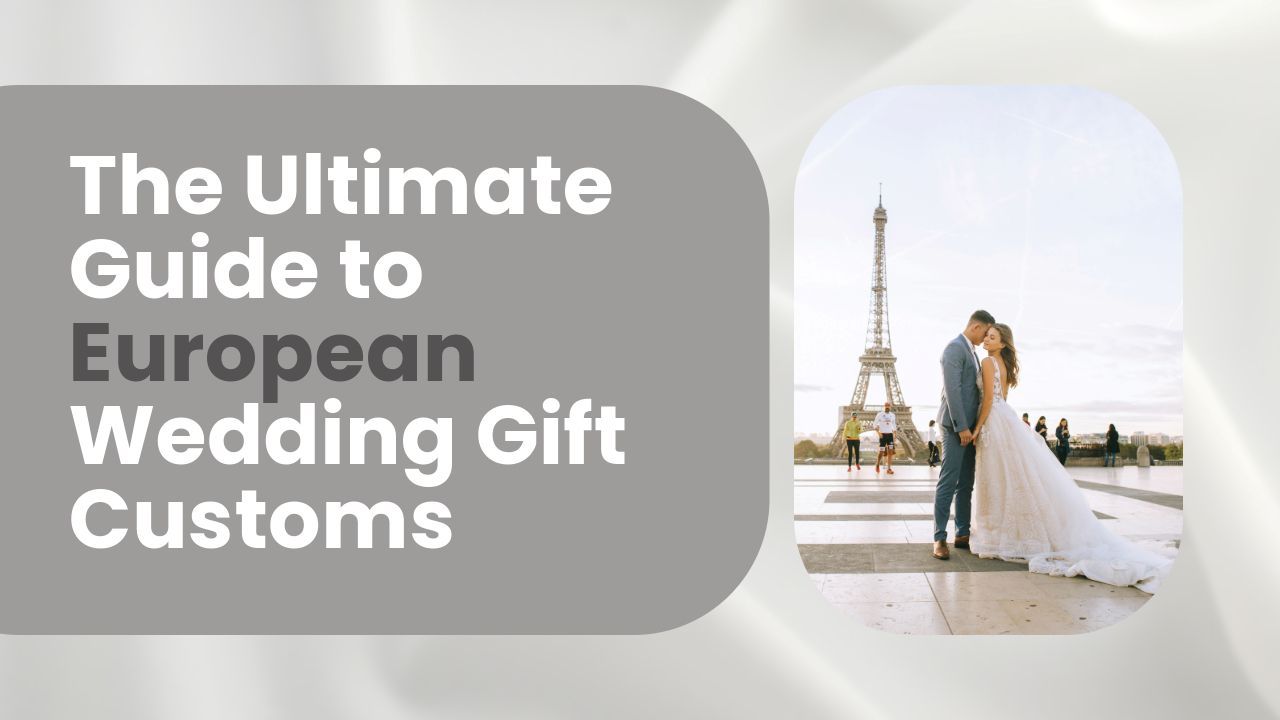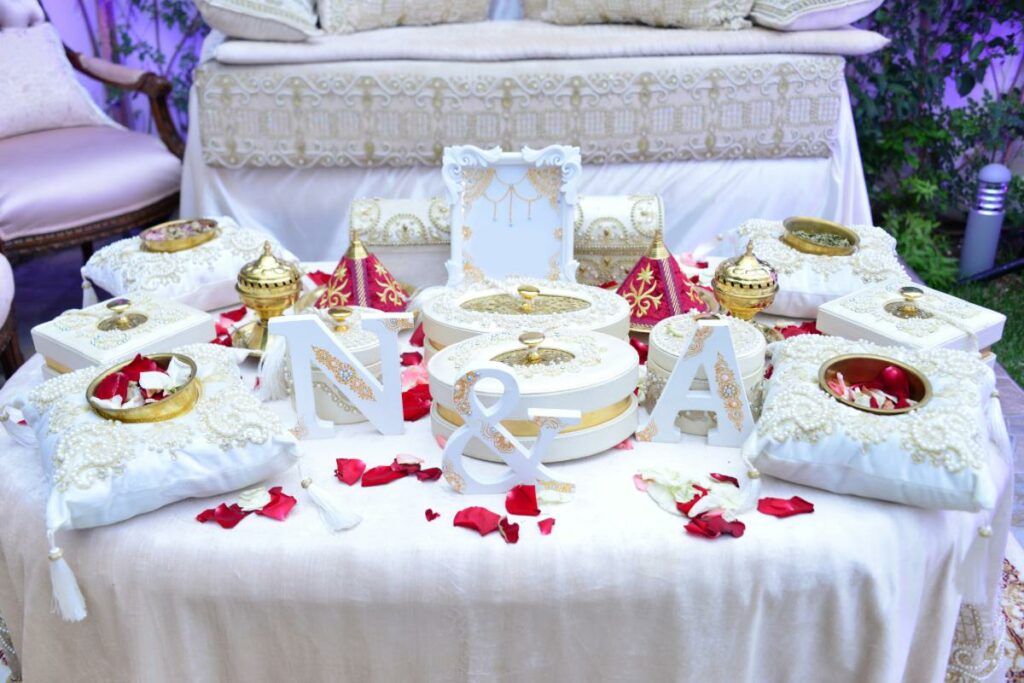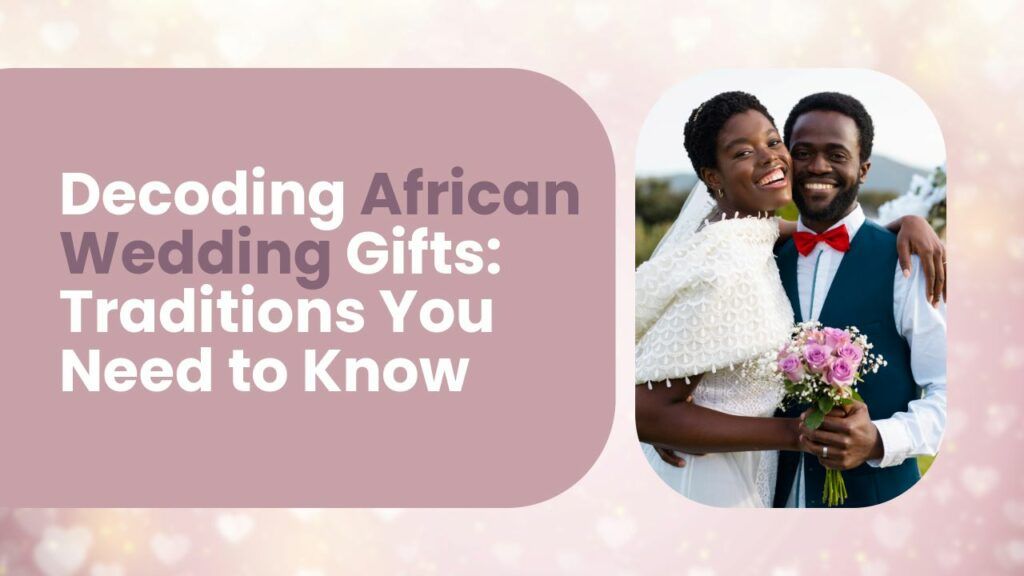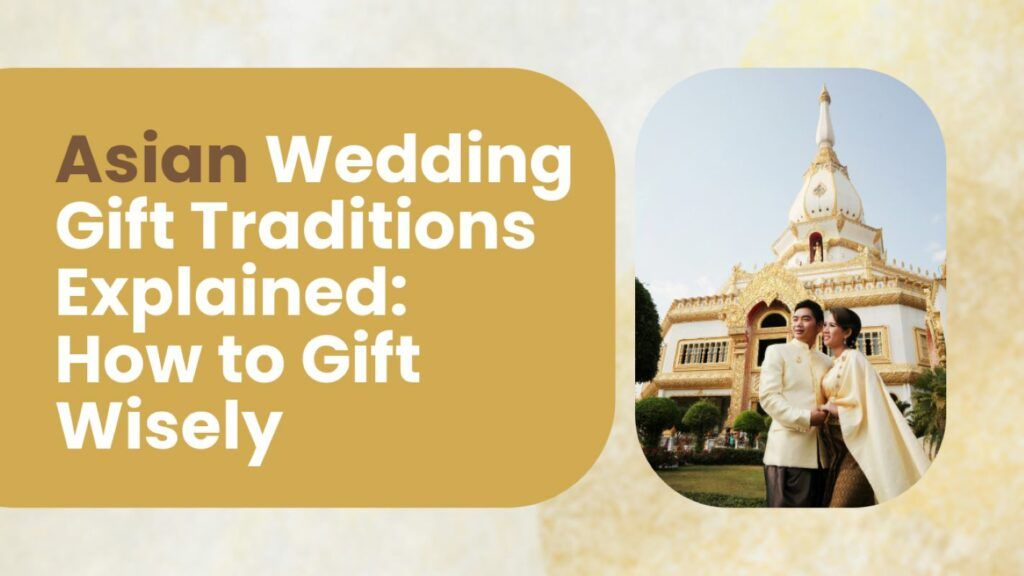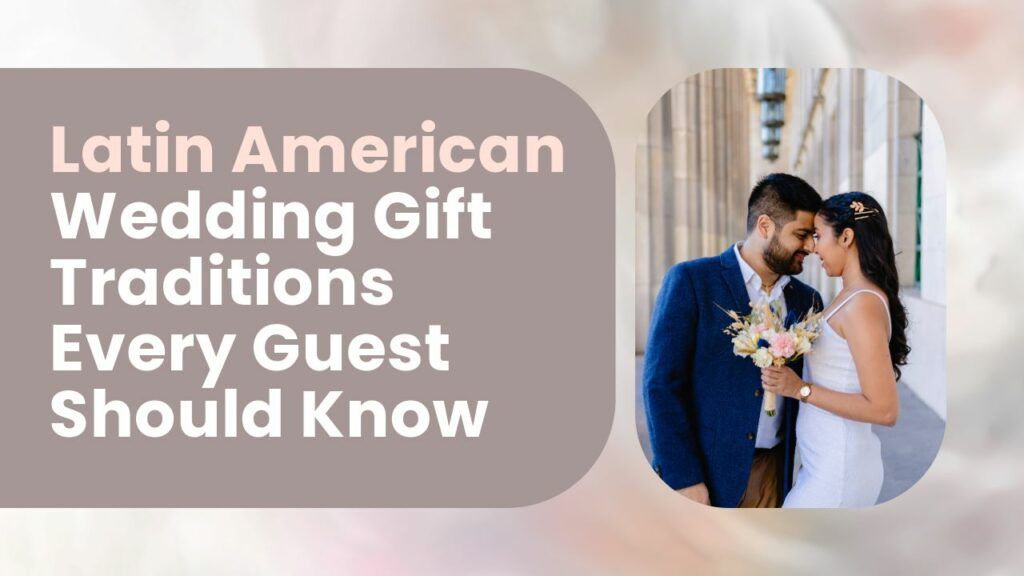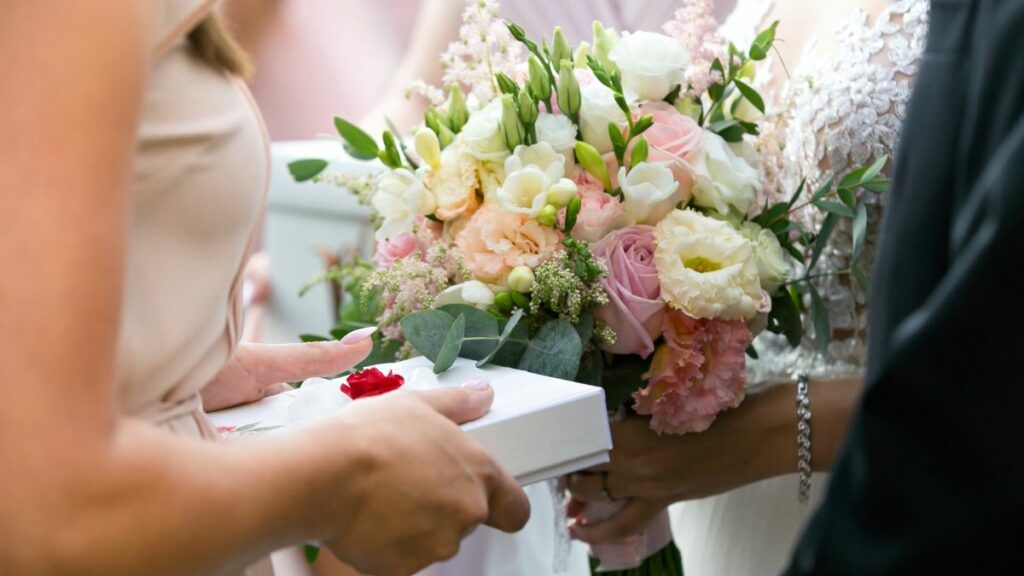Some of the links on this blog may be affiliate links. This means that if you make a purchase through these links, we may earn a small commission at no additional cost to you. We are a participant in the Amazon Services LLC Associates Program, an affiliate advertasing program designed to provide a means for us to earn advertising fees by linking to Amazon.com and affiliate websites.
Wedding traditions make the day of marriage truly special, shaping many elements of the ceremony and reception. Among these traditions, giving wedding gifts is a common European practice, yet the definition of an appropriate gift varies from country to country.
Europe is a continent of different cultures, and so, wedding gift-giving etiquette is also different. What’s considered a thoughtful gift in one country might be seen as a faux pas elsewhere. Every country has a variety of interesting customs that make a wedding day a wonderful celebration.
If you’re looking for the ultimate guide to European wedding gift customs, you are in the right place. We’ll explore the fascinating gift-giving customs of 12 countries as well as the amount you will expect to spend on a typical wedding gift.
Table of Contents
European Destination Wedding Trends
With the growing popularity of destination weddings, more couples are choosing breath-taking European locations such as Italy’s coastal towns, Germany’s historic castles, or Austria’s picturesque vineyards for their special day.
The European destination wedding market is booming, valued at $9.9 million in 2023 and projected to reach $56.3 million by 2033, accounting for 34-38% of the global market. As couples and guests travel across borders for these celebrations, they often encounter different traditions around wedding gifts. By understanding these customs, you can sure to respect local traditions and follow wedding gift-giving etiquette.
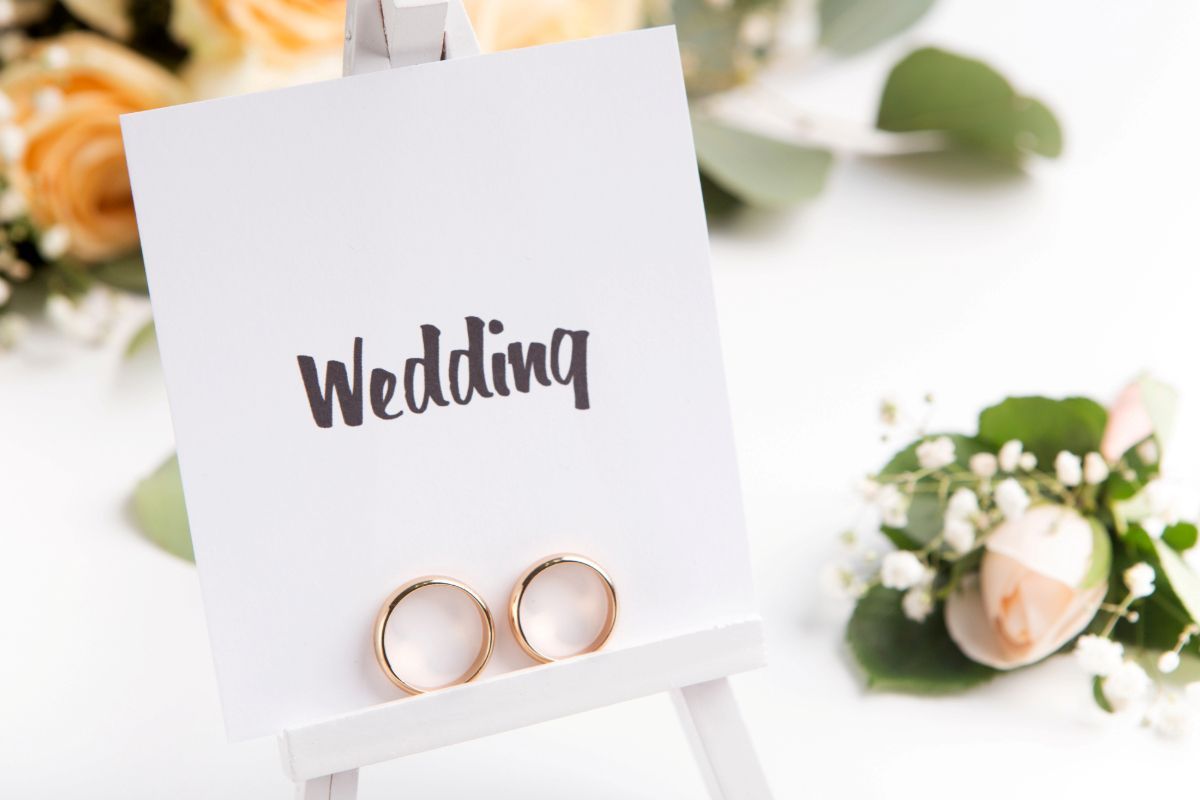
Diversity in European Wedding Gifts Customs
Wedding gift traditions in Europe reflect the continent’s rich cultural diversity. While monetary gifts are popular in Southern and Eastern Europe, Western and Northern European countries favour registries and personalized presents. Understanding these regional practices can help you choose the perfect gift for a wedding in a specific country.
Despite these regional differences, gift remains universally appreciated: money. Across Europe, guests commonly give cash in envelopes or participate in interactive gifting traditions. Now, let’s explore in our guide to European wedding gift customs how these customs differ by country.
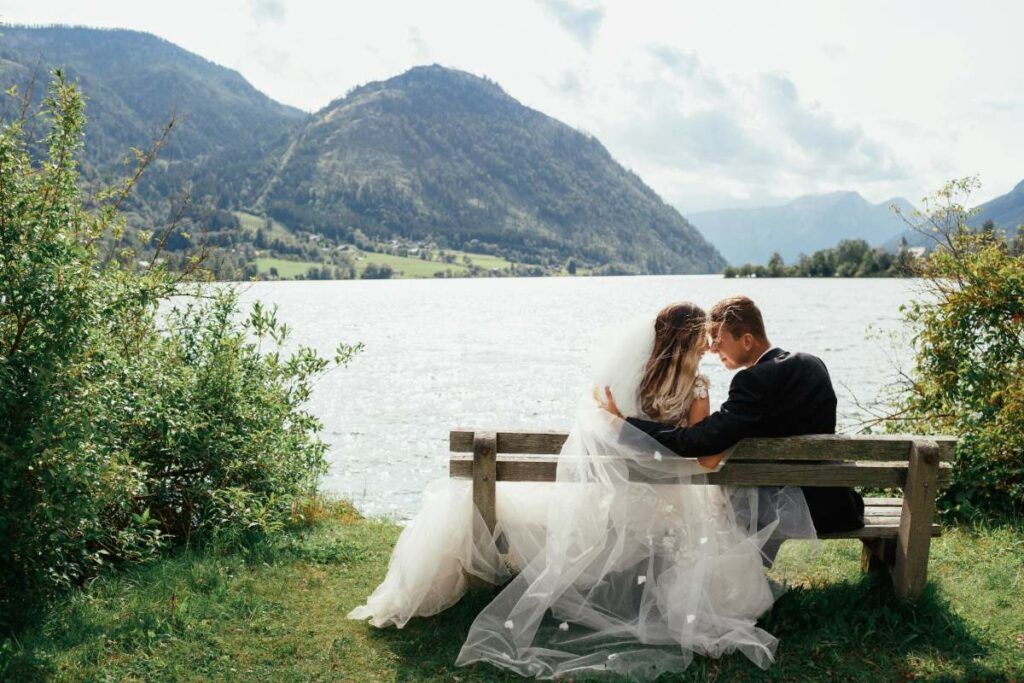
Wedding Gifts in Austria
Austrian weddings begin with a morning tradition where the bride wakes up to fireworks outside her home. She then hosts a breakfast to thank everyone for the fireworks and their participation.
Austrian wedding gifts should match the scale of the celebration and the your budget. If you have already contributed to pre-wedding events (e.g. a hen party), a smaller gift or symbolic gesture is acceptable.
Those who prefer not to give cash directly often choose creative money-gifting ideas—such as folded into decorative shapes or framed. Always check the wedding invitation for hints about the couple’s preferences.
How much should I give for a wedding gift in Austria?
- 💰 Acquaintances and colleagues: €50 per person
- 💰 Friends and distant relatives: €100 to €150 per person
- 💰 Close family and best friends: €200 to €300 per person

Wedding Gifts in Croatia
Wedding registries are uncommon in Croatia, so guests primarily give cash, often in a decorated envelope called a koverta. The amount often depends on your relationship with the couple.
Remember to also include a handwritten note as a thoughtful addition. It’s customary for guests to contribute enough to cover the cost of their attendance at the wedding, helping the couple with their new life together.
How much should I give for a wedding gift in Croatia?
- 💰 Distant friends: €100 to €150 per person
- 💰 Close friends: €200–€300 per person
- 💰 Family Members: It depends on how close they are
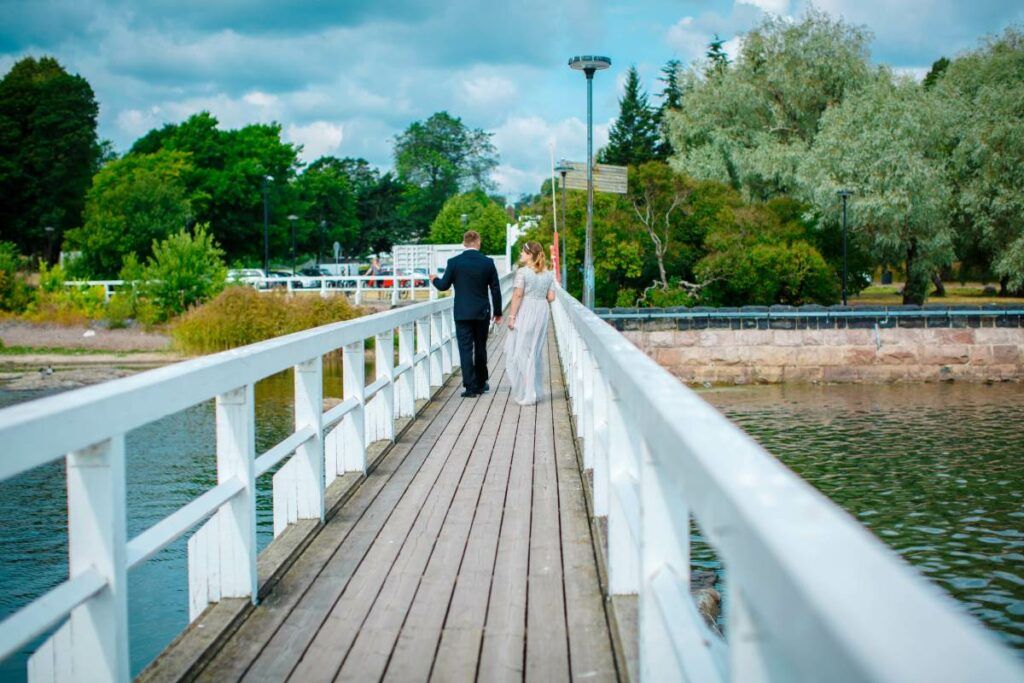
Wedding Gifts in Finland
Finnish weddings are often modest and relatively short. Catering services are expensive, and for this reason, not everyone can afford a wedding party in a restaurant.
Usually, Finns rent so-called wedding halls, which are located in a picturesque area such as by a lake and often with a sauna and other amenities. Since many Finnish couples live together before marriage, they often already own household items. As a result, they prefer monetary gifts over traditional wedding gifts.
Couples usually include their bank account details in the wedding invitation, allowing guests to transfer money in advance, and bring a congratulatory card to a wedding. The cash should reflect your financial situation. There is no one right or wrong amount.
How much should I give for a wedding gift in Finland?
- 💰 Standard amount: €100 per person
- 💰 Women typically give around €100, while men may give up to €200
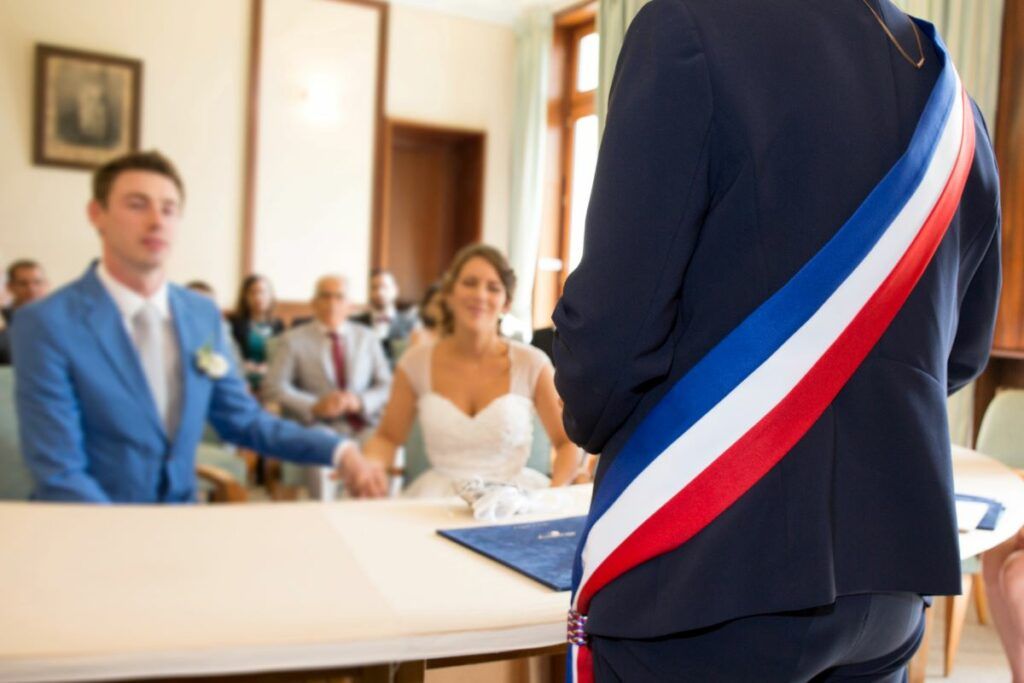
Wedding Gifts in France
There are two types of French wedding invitations—some guests are invited to both the wedding and reception, while others may only attend le vin d’honneur, a cocktail-style gathering after the ceremony.
If you only attend le vin d’honneur, you’ll participate in a short reception right after the wedding with champagne, wine, and finger food.
Le vin d’honneur is a good solution for the couple to spend time with guests who are not invited to the wedding reception.So, your French wedding gift and its amount will depend on what type of invitation you received.
If you are attending the wedding, many couples create a liste de mariage, a registry from which you can choose gifts. The gifts are then sent directly to the newlyweds’ home from the store.
How much should I give for a wedding gift in France?
- 💰 Close Family: €200 to €500 per person
- 💰 Le vin d’honneur (cocktail reception) only: €50 to €100 per person
- 💰 Full wedding and reception: €80 to €120 per person
- 💰 Friends, colleagues, acquaintances: €50 to €120 per person
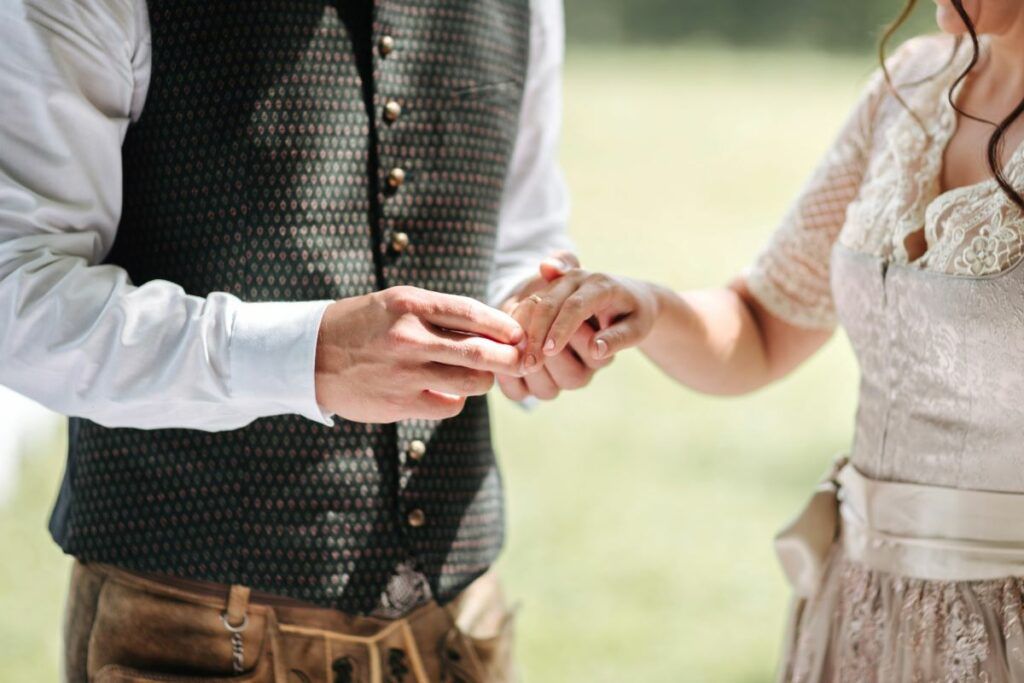
Wedding Gifts in Germany
German weddings tend to be small, intimate gatherings of close family and friends. The couple spends a significant amount of money on food, drinks, and decorations.
Recently, Germans have moved away from the tradition of giving household items. Money has become the most common wedding gift. The amount you should give depends on your relationship with the couple.
To best estimate the range, you should also consider the size and cost of the wedding reception. However, if you are still thinking about physical gifts, choose something creative, personalized or sentimental.
Before the wedding, many guests participate in a polterabend, a lively pre-wedding party where guests smash porcelain for good luck. Gifts for this occasion are small and symbolic, focusing on fun and practicality.
How much should I give for a wedding gift in Germany?
- 💰 Acquaintances and colleagues: €20 to €50 per person
- 💰 Close friends: €50 to €100 per person
- 💰 Family: €100 to €250 per person, but it can go up to €1,000 for very close relatives
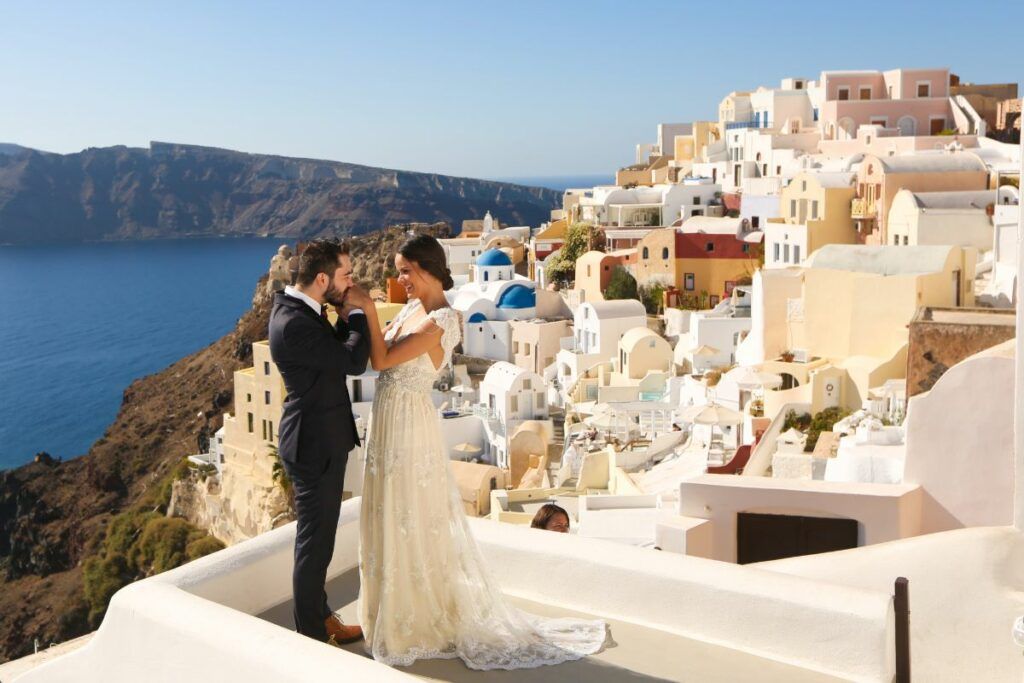
Wedding Gifts in Greece
Greek weddings are known for their large guest lists and lively celebrations.
If you’re a close friend of the newlyweds, you can bring a small, thoughtful gift that reflects their interests. This kind gesture will certainly be appreciated, but it’s not expected in the same way as monetary gifts.
As of 2024, the Greek government introduced a wedding gift tax that applies to both household items and monetary gifts. This new policy might impact traditional gift-giving customs in Greece in the future.
The Money Dance
One of the most famous Greek wedding traditions is the money dance, kalamatiano, where guests pin money onto the bride’s dress or place cash in a special basket. This tradition symbolizes financial support and well-wishes for the couple’s future.
How much should I give for a wedding gift in Germany?
- 💰 Acquaintances and colleagues: €20 to €50 per person
- 💰 Close friends and extended family: €50 to €100 per person
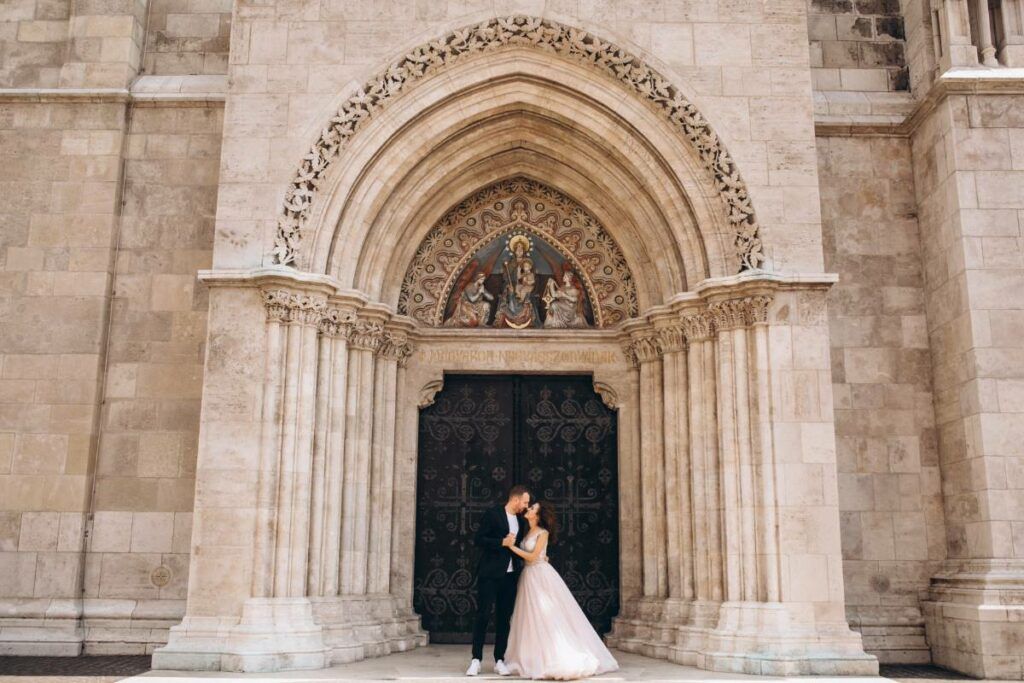
Wedding Gifts in Hungary
A typical Hungarian wedding is led by a master of ceremonies who organizes and entertains guests with fun activities.
One of the highlights is the bride’s dance, a tradition where, at midnight, guests pay to dance with the bride as part of their wedding gift.
Many engaged couples organize their weddings hoping the monetary gifts will cover wedding costs. Wedding costs have gone up in recent years, and the situation has led some couples to opt for smaller, more intimate celebrations.
How much should I give for a wedding gift in Hungary?
- 💰 Standard gift ranges from €100 to €125 per person
- 💰 Bride’s dance contribution: €12 to €25 per person
Read also:
- Popular Wedding Gift-Giving Trends In The US, Canada, And Australia
- Latin American Wedding Gift Traditions Every Guest Should Know
- Creative Travel Wedding Gifts That Will Surprise Adventurous Couples

Wedding Gifts in Italy
Italy’s regional diversity influences wedding gift traditions.
In the north (e.g. Lombardy or Veneto), weddings tend to be more formal, and guests offer more extravagant gifts. However, in the south (e.g. Calabria or Sicily), weddings are more traditional, and gifts are more of a symbolic gesture. In some regions, such as Tuscany, Italians typically offer local goods, like wine.
Some thoughtful gifts you might consider are tableware, art glass, local products, and experience vouchers.
The Art of the Busta
Despite these regional differences, cash remains the most universal and practical gift throughout Italy. Money is typically given in a decorative envelope called the busta, which guests place in a designated box at the reception. Many couples rely on this tradition to help cover their wedding expenses.
How much should I give for a wedding gift in Italy?
- 💰 Standard amount: €100 to €200 per person
- 💰 Acquaintances & colleagues: €50 to €100 per person
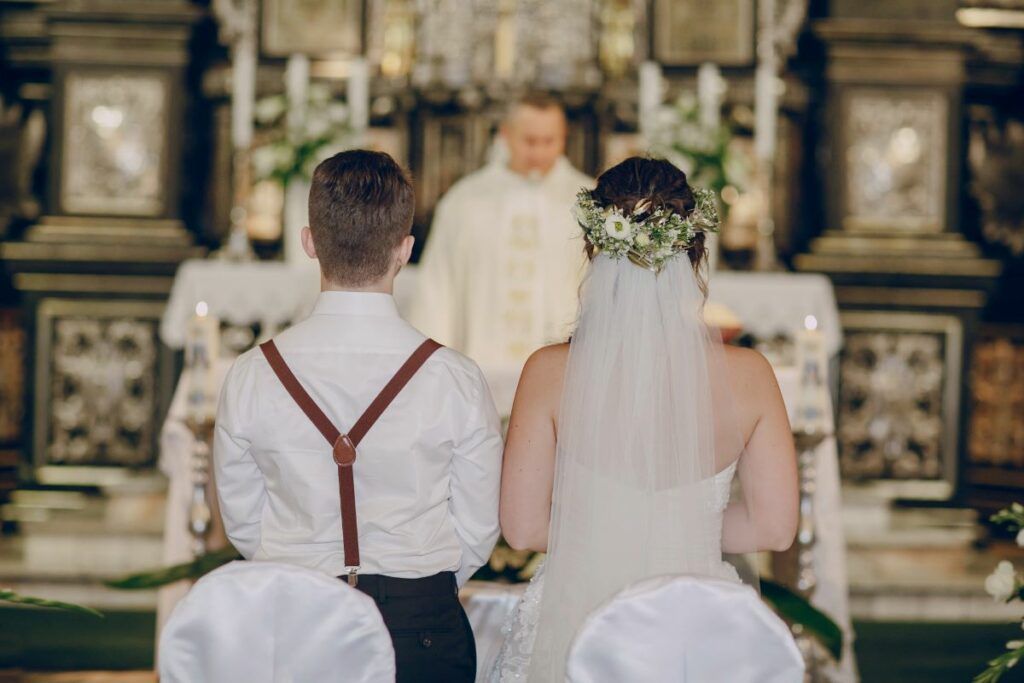
Wedding Gifts in Poland
Polish wedding gifts combine tradition with modern influences.
The most common gift is money, presented in a decorative envelope called a koperta, often handed to the couple after the ceremony or placed in a designated box at the reception. It is customary to sign the envelope to allow the newlyweds send a thank you note after the wedding.
Sometimes, newlyweds create a gift registry listing the items that they would like to receive. Guests can select a gift from the list and “reserve” it with the couple or a designated person. These lists typically include home essentials, electronics, or home decor.
How much should I give for a wedding gift in Poland?
- 💰 Close family: €240 to €350 per person
- 💰 Friends: €140 to €160 per person
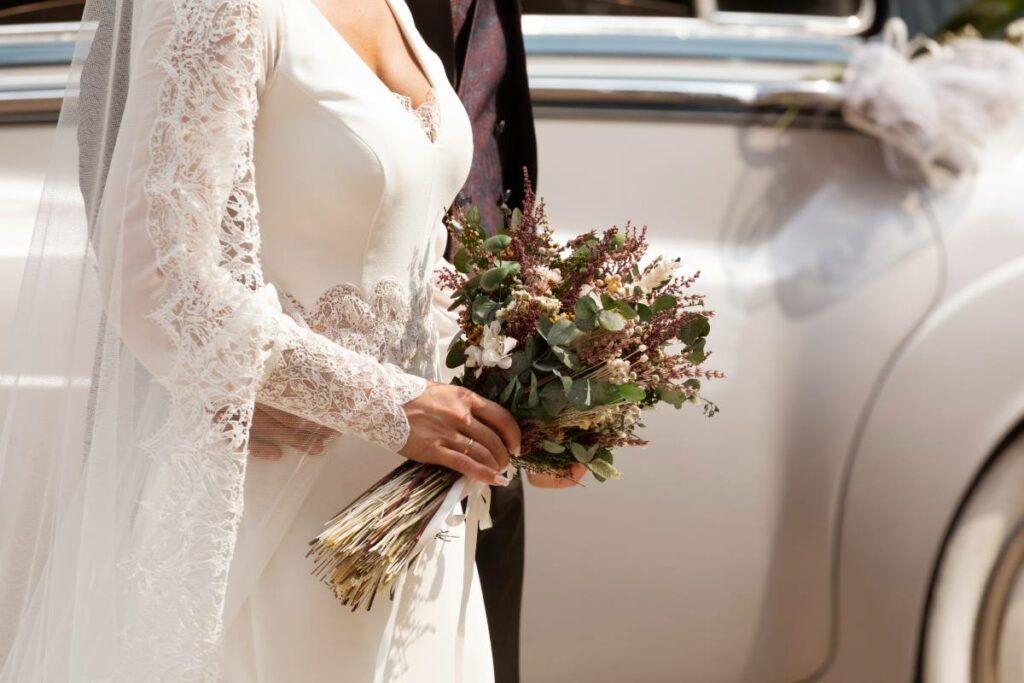
Wedding Gifts in Spain
In Spain, in recent years, traditional wedding gift registries have largely been replaced by monetary gifts.
Some couples include their bank account details in the invitation, allowing guests to transfer money before the event. Wedding costs in Spain are amongst the most expensive in Europe. That’s why newlyweds prefer money to help them cover expenses. If you are not comfortable giving money, you can opt for personalized or handmade gifts or even gift vouchers.
Money at the Banquet
At a Spanish wedding, the ideal time to present your monetary gift is during the banquete de boda (wedding banquet). Guests typically give cash in envelopes or contribute to a group gift. The sum varies depending on your relationship with the newlyweds and whether or not you attend the reception.
How much should I give for a wedding gift in Spain?
- 💰 Colleagues and distant relatives: €100 to €200 per person
- 💰 Close friends: €200 to €300 per person
- 💰 Siblings and best friends: €300 to €500 per person
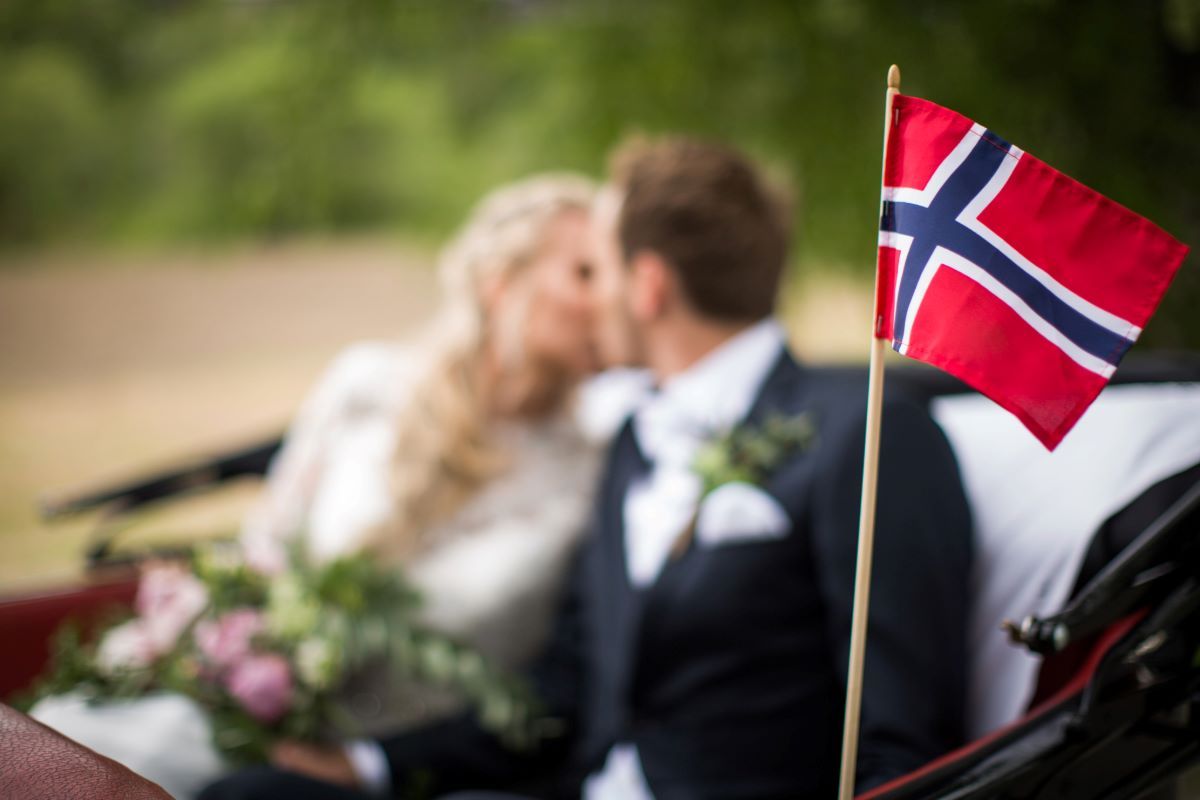
Wedding Gifts in Norway
Norwegian wedding traditions are a combination of historical customs with modern celebrations creating deeply personal and culturally rich events.
The word bryllup, derived from Old Norse brúd(h)laup meaning “the running bride,” symbolizes the bride’s transition to her new life with her spouse.
When it comes to gifts, Norwegians take a practical and thoughtful approach, often giving cash, gift cards, or registry items. Some guests may even contribute to specific wedding costs, like the cake or flowers. While there’s no fixed rule for gift amounts, it’s common to consider covering the cost of one’s meal as a gesture of generosity.
How much should I give for a wedding gift in Norway?
- 💰 Acquaintances: €40 to €50 per person
- 💰 Colleagues: €50 to €60 per person
- 💰 Close friends: €100 to €150 per person
- 💰 Family and siblings: €150+ per person

Wedding Gifts in the United Kingdom
British weddings tend to be intimate gatherings, often held in restaurants for close family and friends.
After the ceremony, everyone goes to the so-called “wedding breakfast,” a wedding reception that serves a meal, which usually starts after 5:00 p.m. When the rest of the guests arrive, the newlyweds start their first dance.
What are the standard wedding gifts in the UK?
Wedding registries are very common in the UK and many couples provide a curated list of gifts from a specific store or online service. If a registry is available, it’s generally considered polite to choose something from the list rather than buying an alternative gift.
However, in recent years, monetary gifts have become more popular. Many couples now opt for a honeymoon fund, which allows guests to contribute to the couple’s travel expenses instead of giving physical gifts.
If you’re uncomfortable giving cash, there are many alternatives to choose from: personalized artwork, high-quality travel accessories, or vouchers. Ultimately, it’s about giving what feels right given your relationship with the couple and your budget.
How much should I give for a wedding gift in the United Kingdom?
- 💰 Close family members: £100 to £300 per person
- 💰 Close friends: £75 to £150 per person
- 💰 Evening guests (reception only), colleagues and acquaintance: £25 to £50 per person

